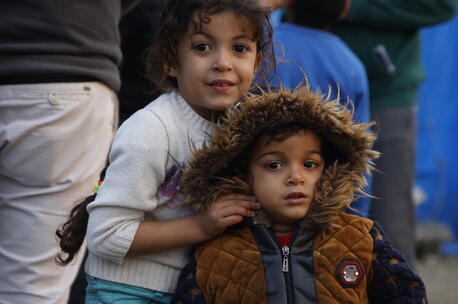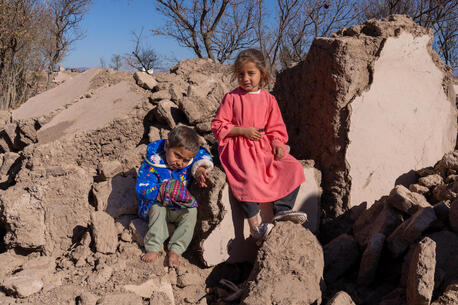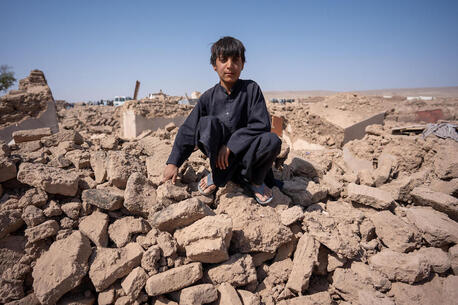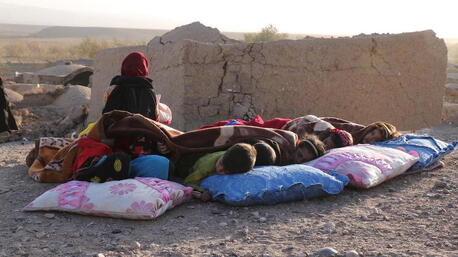
Powerful Earthquake Hits Western Afghanistan
UNICEF and partners are providing emergency supplies and services to children and families after a devastating earthquake struck Herat, Badghis and Farah provinces.
UNICEF and partners are providing humanitarian aid after a magnitude 6.3 earthquake hit Herat, Badghis and Farah provinces in western Afghanistan on Friday morning, Oct. 7. According to preliminary reporting from OCHA, the United Nations Office for the Coordination of Humanitarian Affairs, 11,585 people have been impacted — more than 1,000 people are dead and over 1,660 have been injured.
UNICEF Afghanistan staff are on the ground, working with UN colleagues to assess the full impact of the quake and its aftershocks. The number of casualties and households affected is expected to rise as remote areas are reached and assessments are completed.
UN humanitarian partners are rushing medical and trauma support to regional hospitals, along with emergency shelter, food assistance and other supplies. The injured are being treated in nearby health facilities, with emergency drugs provided by UNICEF and partners.
UNICEF delivered 10 high-performance tents to support the set-up of temporary health clinics and is using pre-positioned supplies to establish Child-Friendly Spaces for more than 3,400 children requiring case management services.
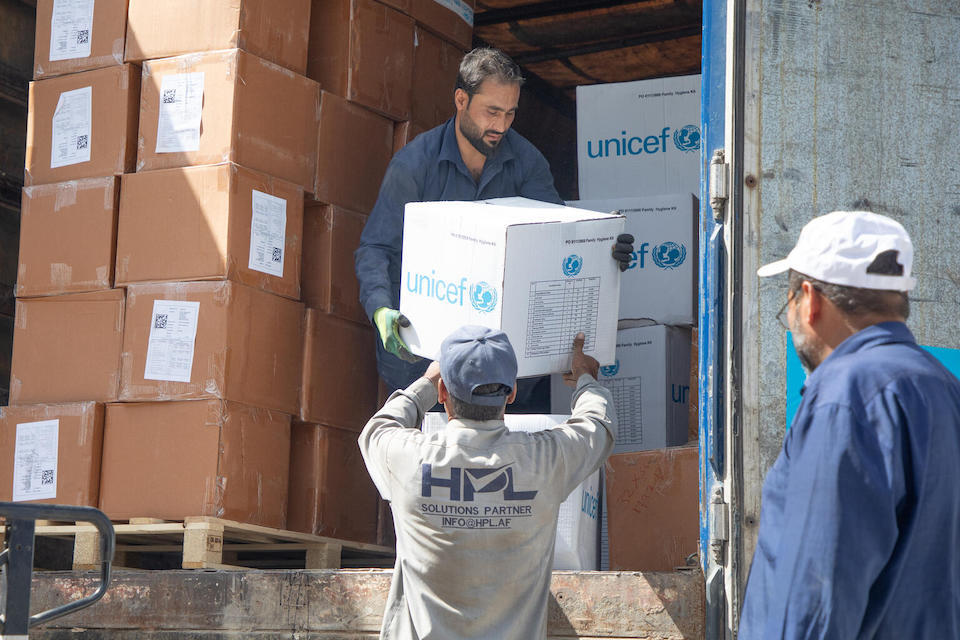
The aftermath of an earthquake is often more deadly for children than the quake itself
To help children and family impacted by the quake, UNICEF has dispatched emergency hygiene kits containing essential items like bathing soap, laundry soap, a toothbrush and toothpaste, bath towel, sanitary pads and more. As of Oct. 7, UNICEF had already distributed 10,000 hygiene kits to earthquake-affected areas, along with blankets, basic household items, 1,500 sets of winter clothes and 10,000 tarpaulins for families who lost their homes.
A UNICEF WASH (water, sanitation and hygiene) response team has been deployed to mitigate the risk of a possible cholera outbreak. Water trucking is expected to begin within the next 48 hours. Children in emergencies are at high risk of contagious disease outbreaks, particularly waterborne illnesses like cholera.
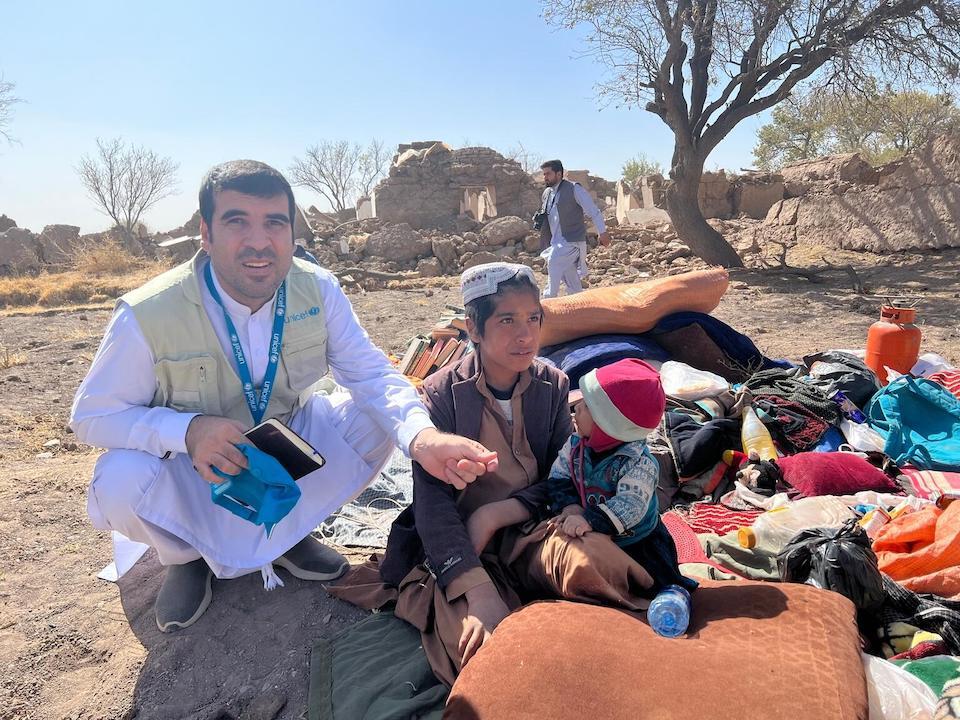
UNICEF continues to deliver for children in Afghanistan
UNICEF has been on the ground in Afghanistan since 1949, working with partners to shore up essential services for children and to provide lifesaving support and protection for the most vulnerable. Children growing up in Afghanistan face chronic poverty, widespread food insecurity and a severely strained health care system.
More than 152,000 cases of acute watery diarrhea with dehydration — often caused by unsafe drinking water and poor sanitation and hygiene — were reported across 333 districts in Afghanistan this year as of August 2023. Of those, 87,242 (57 percent) were children under the age of 5. UNICEF continues to scale up health, WASH and social behavior change interventions in response.
The rate of extreme malnutrition in Afghanistan is very high: 9.5 percent. This year alone, UNICEF has screened more than 1.3 million children for acute malnutrition through mobile and fixed health facilities and treated more than 60,000 children suffering from severe acute malnutrition.
“Let me express our heartfelt condolences to families mourning the loss of loved ones,” said Fran Equiza, UNICEF Representative in Afghanistan. “Together with our partners, we will make every effort to bring quick relief to those affected.”
UNICEF's humanitarian response in Afghanistan remains underfunded. Your contribution can make a difference for Afghanistan's children. Please donate.
